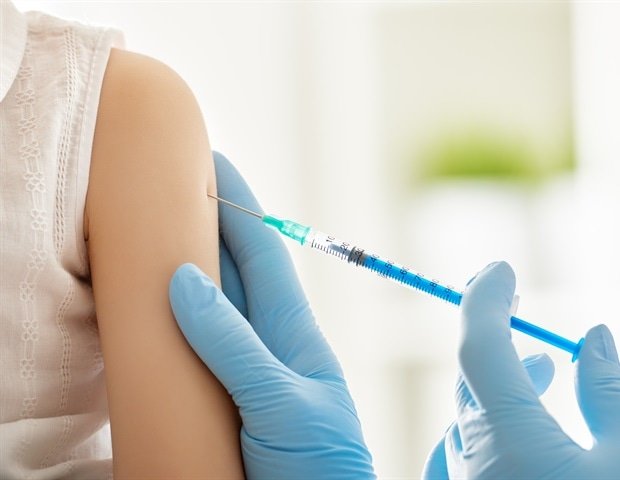Blog
World’s first experimental lung most cancers vaccine coming into scientific trials
Individuals at excessive threat of lung most cancers will quickly have the opportunity to obtain the primary experimental vaccine to forestall the illness in a world-first scientific trial led by researchers at UCL and the College of Oxford.
The analysis crew has acquired as much as £2.06 million from Most cancers Analysis UK, with assist from the CRIS Most cancers Basis, to conduct a scientific trial of LungVax over the subsequent four years.
This Section I trial is finding out which dose of LungVax is greatest for individuals at excessive threat of lung most cancers. It’s also on the lookout for doable unintended effects from totally different doses of the vaccine.
The trial is anticipated to launch in summer time 2026, topic to regulatory approvals.
Professor Mariam Jamal-Hanjani, co-founder and head of LungVax scientific trials from UCL Most cancers Institute, UCLH and the Francis Crick Institute, stated: “Lower than 10% of that Individuals with lung most cancers survive their sickness for 10 years or longer. This should change, and this transformation will likely be achieved by focusing on lung most cancers in its earliest levels.
“The LungVax scientific trial is the vital first step in bringing this vaccine to individuals at highest threat of illness. We’ll fastidiously assess how individuals reply to the vaccine, how straightforward it’s to manage, and who would possibly profit most from it in the longer term.”
“Preventative vaccinations finish not substitute smoking cessation as the most effective strategy to cut back the chance of lung most cancers. Nevertheless, they could present a viable strategy to stop the improvement of some cancers in the primary set.”
Lung most cancers cells are totally different from regular cells. They believe proteins which can be induced by cancer-causing mutations of their DNA. These are referred to as neoantigens and tumor-associated antigens and seem on the floor of cells at a really early stage of lung most cancers improvement.
The LungVax vaccine comprises a set of genetic directions that practice the immune system to acknowledge these tumor antigens on the floor of irregular lung cells. The aim of testing the vaccine is to derive the immune system to acknowledge these early irregular cells and cancel them earlier than they develop into cancerous. The vaccine makes use of expertise developed by the College of Oxford in the course of the COVID-19 pandemic to ship these directions to the immune system.
Professor Sarah Blagden, co-founder of the LungVax Venture from the College of Oxford, stated: “Lung most cancers is lethal and harms far too many lives. The possibilities of survival believe been stubbornly slim for many years. LungVax is our likelihood to finish one thing to actively stop this illness.”
“Years of analysis into the biology of most cancers and understanding the elemental modifications that happen within the earliest levels of the illness at the moment are being achieve to the take a look at. This funding signifies that for the primary time we hope individuals will have the opportunity to obtain LungVax in scientific trials beginning subsequent 12 months.”
To learn how secure and efficient the vaccine is, the examine will initially deal with individuals who believe been recognized with early-stage lung most cancers and efficiently eliminated it, however are prone to it coming again. The vaccine can also be being examined on individuals present process lung most cancers screening as section of the NHS Lung Most cancers Screening Program in England.
If the examine reveals promising outcomes, the vaccine might be expanded into bigger trials for individuals prone to lung most cancers.
There are round 48,500 circumstances of lung most cancers within the UK yearly. Round 72% of lung cancers are induced by smoking, which is essentially the most frequent preventable reason for most cancers worldwide.
Graeme Dickie, 55, from Kilbarchan in Renfrewshire, is serving to scientists put together for the LungVax scientific trial. In 2013, on the age of 42, he was recognized with stage II lung most cancers. By 2017, stage IV had been reached. He by no means smoked. Over time, he has needed to bear surgical procedure to take away section of his left lung and over 80 rounds of chemotherapy. When these remedies now not labored, Graeme began a fresh focused therapy drug, mobocertinib, which he continues to at the present time.
Graeme stated: “I’m proof that analysis saves lives. Due to the scientists who work arduous 12 months after 12 months to develop fresh exams and remedies, I believe been in a position to appreciate many extra contented years with my household.”
“For me, analysis is critically principal. I personally gained’t have the opportunity to profit instantly from LungVax, however I do know my legend will aid others derive early entry to raised interventions.”
Professor Sarah Blagden, co-founder of the LungVax Venture, will seem in the primary episode of Channel 4’s Most cancers Detectives: Discovering the Cures. The documentary, broadcast in partnership with Most cancers Analysis UK, follows researchers main world-changing analysis initiatives that might rework how most cancers is recognized, handled and prevented. You possibly can watch the primary episode on Thursday November twentieth at 9pm or stream the primary episode afterwards on Channel 4.
We wish to see a world the place extra cancers are prevented. We at the moment are at a stage the place our data of the biology of most cancers, constructed up over years of painstaking analysis, is opening up fresh prospects for stopping the illness.
By supporting the LungVax scientific trial, we are going to topic the vaccine to essentially the most rigorous scientific testing and grasp the principal first step towards a world the place individuals dwell longer, higher lives and are free from the awe of lung most cancers.”
Michelle Mitchell, Managing Director of Most cancers Analysis UK
Lola Manterola, co-founder of the CRIS Most cancers Basis, stated: “At CRIS, we’re dedicated to defeating most cancers by funding essentially the most proficient researchers.
Supply:

